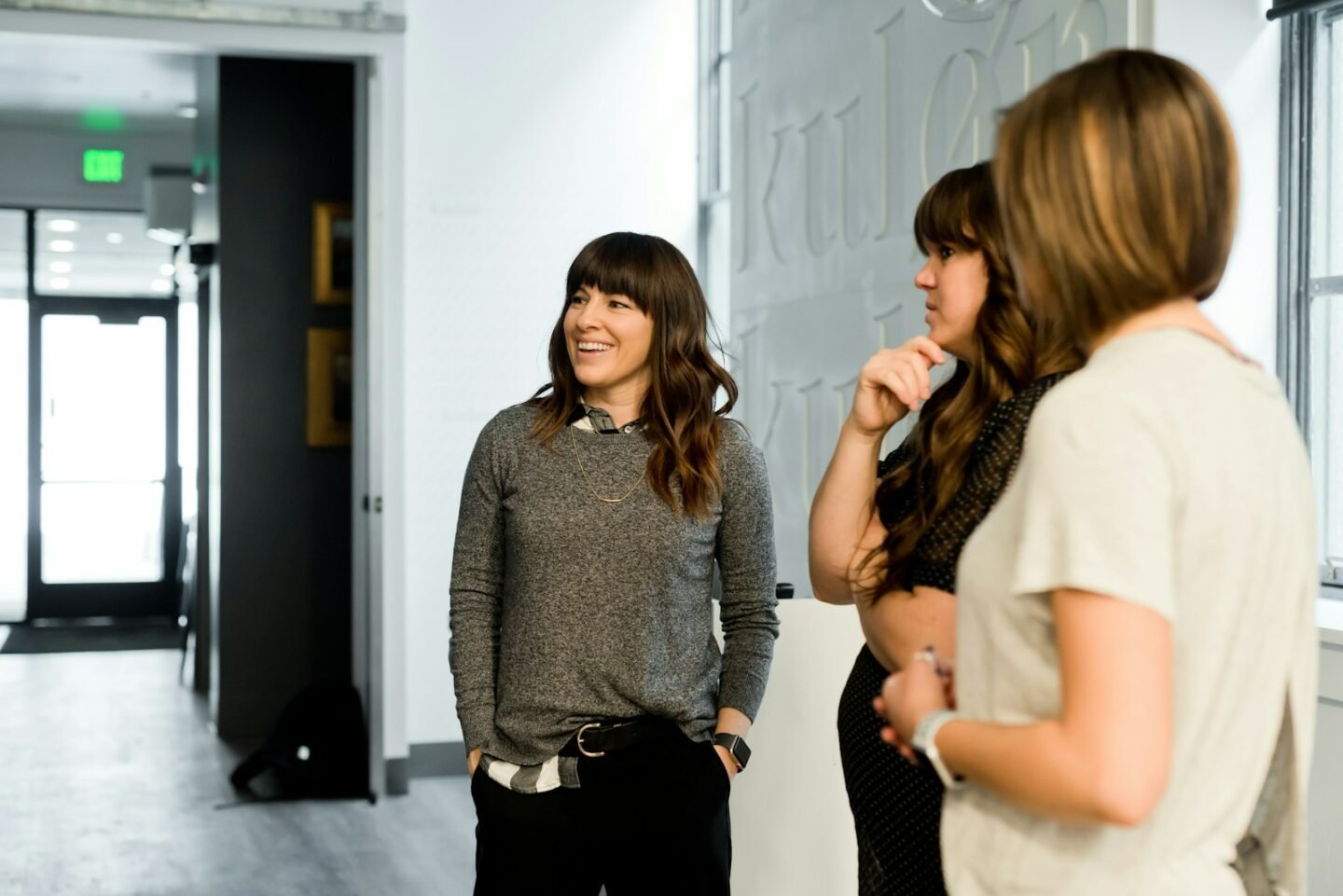While in some sense, queer rights have progressed in recent decades, discrimination and stigma persist. Studies confirm the majority of us still face harassment, financial setbacks, and threats to our well-being. Being able to live authentically has undeniable mental health benefits, with those who are out reporting lower rates of anxiety and depression than those who remain silent. However, the workplace remains a complex environment for LGBTQ+ visibility.
And whilst 46% of lesbian, gay and bisexual people and 47% of trans people feel able to be open about their sexual orientation or gender identity to everyone in their family, the workplace paints a different picture. Research from LGBTQ+ networking hub myGwork found that 7 out of 10 women and non-binary professionals experience discrimination at work.
So what’s the best plan of action around being out and proud at work? Let’s discuss.
Take an Honest Assessment of Your workplace
It’s essential to take a pragmatic look at your workplace environment. Some organisations are genuinely doing great work but others are merely talking the talk without making any positive changes.
Start by reviewing your company’s policies on diversity and inclusion. Are there explicit protections for LGBTQ+ employees? Investigate the culture – does the organisation actively promote an inclusive environment through initiatives, events, or support groups?
Consider the tone set by leaders in your workplace. Although this isn’t guaranteed to filter down effectively to all team members, a CEO or head of department that champions inclusivity can be indicative of a supportive environment.

If it feels safe, reach out to colleagues you trust. This can offer a real-world perspective on how the organisation handles queer issues and whether there have been instances of discrimination. Their experiences may differ from yours, so trust your instincts and gather as much information as possible before you make any decisions.
“Considering personal safety and well-being is paramount,” says Sex Therapist Aliyah Moore. “If being out at work poses a risk to one’s mental health or physical safety, it may be necessary to prioritise self-preservation over full disclosure.”
Queer Visibility in the Workplace
Not everyone wants the responsibility of being the first person to break the mould. But it’s worth considering whether coming out at work has the potential to challenge stereotypes, break down barriers, and foster a sense of belonging for other members of the community in your workplace or wider industry.
While authenticity is crucial, it’s equally important to strike a balance between personal and professional life. Assess the potential impact on your career trajectory and weigh it against the benefits of being out at work. You may even want to start looking for vacancies in workplaces that have well-publicised allyship with queer communities, since studies show that organisations with inclusive policies tend to attract and retain top talent, contributing to a more dynamic and innovative work environment.
Let’s face it – the journey of being out and proud is not without its challenges, and the workplace is a critical arena where the complexities of acceptance confront us. Despite legal safeguards in some countries which explicitly prohibit gender and sexual identity-based employment discrimination, the reality is a persistent prevalence of anti-LGBTQ bias in the workplace.
Real Examples of People Who are Out at Work
We spoke to Attorney Brooke Goff, who was the first openly gay lawyer in her state and opened the first all-female law firm. She believes strongly in owning who you are in and out of the workplace. Yet she has some thoughts on whether that conversation should make its way to the office.
“I have never lived a day in shame due to my sexuality and instead I have embraced it and owned it as part of my identity. I do feel that whether someone is a member of the LGBTQ community, or a member of the heterosexual community is personal and not for the workplace.”
“As a business owner that employs a staff of almost 50, I encourage a professional atmosphere and I discourage employees [from] discussing personal matters, such as sexual orientation, during work hours. When personal matters, like sexual orientation, come into the workplace it invites judgment.”
“People should always be true to themselves and live out their truth but that does not mean that sexual orientation should be screamed from the rooftops while in the 4 walls of any office or professional environment.”
In contrast, others have seen benefits to coming out at work.
Self-employed coach and co-founder and co-organiser of the first-ever Pride in Hay-on-Wye, Helen Jane Campbell says, “It wasn’t something I had really expected but it turned out I had more LGBTQ+ clients than I had realised. It wasn’t until I started talking about Pride and my own identity that some of them came forward and talked about theirs.”
“I think I have also attracted more LGBTQ+ clients as a result. This was never my intention but I’m pleased about it.”
So, should you be out and proud at work?
Ultimately, the decision is deeply personal and hinges on finding the delicate balance between the real you and the professional implications it may have. Consider your needs today and career goals longer-term. With thoughtful reflection, you can take steps that allow you to thrive as your true self, at work and in life.
Are you out and proud at work? Let us know in the comments.
Love,
Team Nonchalant x
Last Updated on 5th March 2024 by Nonchalant Magazine
